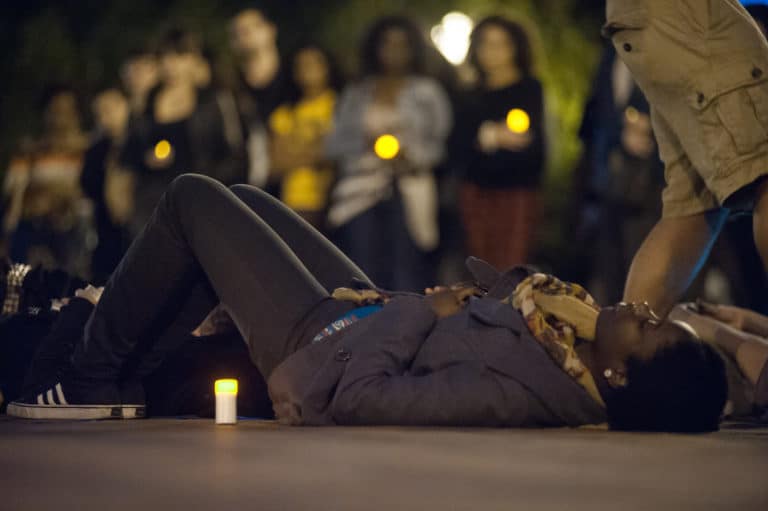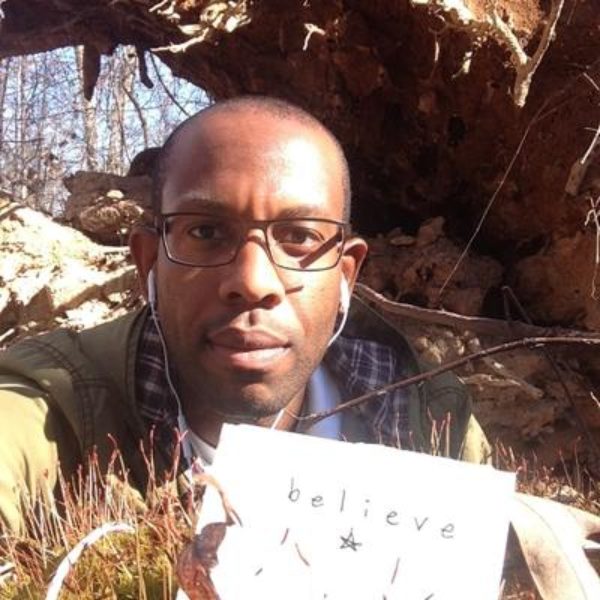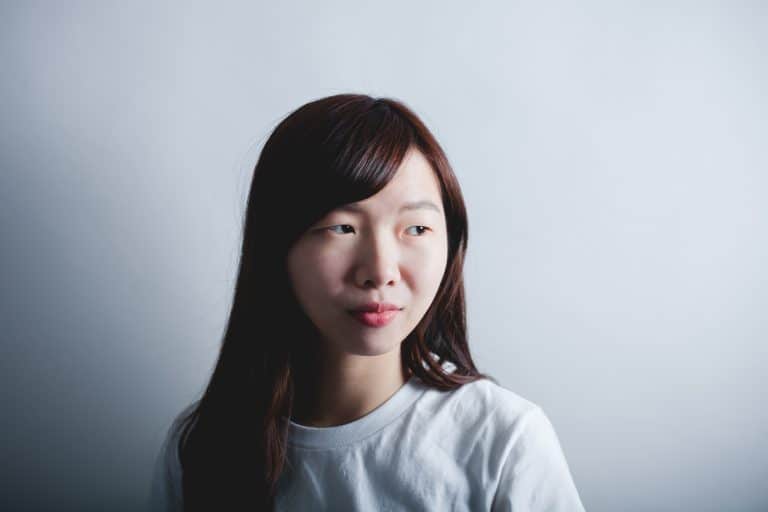
Image by Neon Tommy.
The Zen of Biggie’s “Ready To Die”
Part of the Buddhist meditative practice of tonglin is identifying with the suffering of another. The practice is meant to activate empathy and increase compassion.
Lately in my practice I have been taking in the suffering of a lot of people who are victims, family of victims, or survivors of a mass shooting or an extrajudicial police killing. A lot. A recent report has shown that there has been at least one mass shooting a day so far this year. And the map of fatal police encounters is staggering, especially when coupled with widely-circulating video footage of abuses. With these kinds of statistics and graphic imagery, it could be easy to live in a constant state of fear. A shooting can happen anywhere, at any time. Which means, that at any given point of your day, you could be shot or killed.
That’s scary to think about. It could happen to any one of us. Whether we like it or not, witnessing the sudden death of another makes us cognizant of our own mortality. After we get the news of another shooting or extrajudicial killing, we react in any number of ways, some of which may only serve to distance our sense of self from the feeling of danger. In our bewilderment we try to rationalize the event, see it as something that couldn’t possibly happen to me. People are just crazy these days.
This is probably a perfectly healthy response to very real danger. Establishing this distance between ourselves and sudden death is necessary for our survival. But what may actually be unhealthy is to not acknowledge when we are afraid. Can we say exactly why these stories of death scare us — can we admit it out loud? A violent death is scary. On the other hand, if our heightened defenses are always up, if we are constantly in a state of fear, then we quickly become exhausted. Shell shock sets in.
Most of us like to picture our death as some abstract event that will happen at some point in the distant future. We like to think that we will be ready for it when it comes. But what if we were one of those people in the news headline or in the dashcam video suddenly faced with our own mortality?
In 1994, The Notorious B.I.G. released the album Ready To Die. The album tells the story of a persona, Biggie, who lives the life of someone with nothing to lose. He lives as if he were already dead because he is, in attitude, “ready to die.” The tough street attitude of the Biggie persona endeared him many fans, but how many of us are ever truly ready to die?
It’s hard to say what Christopher Wallace, who played The Notorious B.I.G., felt in his final moments as he sat dying from real gunshot wounds. No one is ever really ready to die that way; I’ll bet Biggie felt the same shock and fear that any one of us would feel under those circumstances.
The Buddha encouraged his followers to contemplate death often, so from the start contemplation on the hour of one’s own death has been a fundamental practice in Buddhism. Contemplation on death, strange as it may seem, can lead to greater appreciation for life. But can regular contemplation on death prepare us to be “ready to die?” What if regular meditation on death could somehow lessen the fear of death?

To many who are new to the practice of meditation, on the surface, it appears to be about relaxation, but relaxation is not the main goal of meditation. Meditation is not about shutting our eyes to the suffering inside us nor to the suffering of others around us. The term “Buddha” means “one who is awake”. So the purpose of meditating is to awaken to life — not just to the wondrous, magical parts, but also to the agony and sorrowful parts as well. They inter-are. Just as life and death inter-are. So making the decision to meditate is making a choice to stay awake for the whole ride.
We can accept that death is inevitable, but we do not have to accept that a random mass shooting is inevitable. Yet one cannot simply shut one’s eyes to these tragedies happening all around us. One has to accept that this has become a possibility amongst possible events in our day-to-day lives. Even if the repeated news stories have already left you completely numb, there is always a chance to connect with your own grief and touch your own feelings of mortality as they arise. And by contemplating death as a certainty, rather than as some foggy abstract notion, perhaps we can learn to fear it less. Perhaps we may even be ready for it, whenever, wherever, however.


Share your reflection